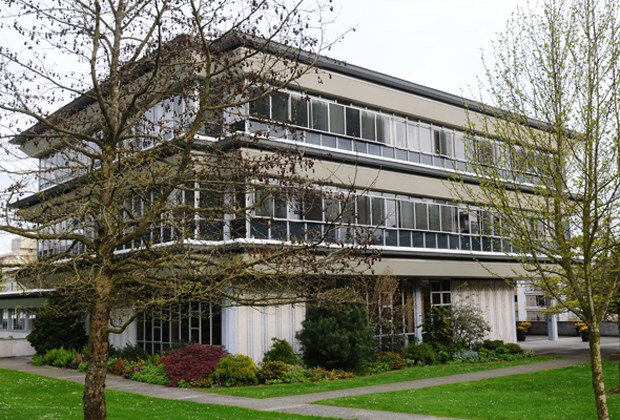Coach houses may be coming to your neighbourhood.
After years of debate and study, the District of West Vancouver inched closer to allowing coach houses across the municipality at Monday's council meeting.
Many councillors and speakers viewed the detached secondary suites as an effective method to quell the surge of monster mansions that have characterized new housing in recent years.
Besides helping aging parents stay in their neighbourhood, coach houses are a great method of preserving community character, according to resident Kim Little.
"I'm really concerned at the rate of the destruction of our seaside cottages, and in turn our history, and in turn our community soul," she said.
Council's vote leaves district staff with the task of prepping bylaws that would allow the rental units while giving a voice to concerned neighbours through a design review process.
Council is scheduled to vote on the bylaws this fall.
Coach houses could hurt neighbourhood character by blocking sunlight, creating privacy problems, and leaving neighbours jockeying for a continually dwindling number of parking spots, according to Heather Mersey, a director with the Ambleside Dundarave Ratepayers Association.
"We have to ensure neighbours potentially affected by any future coach house policies will have a veto option," she said.
Mayor Michael Smith supported her sentiment.
"We have to somehow square that circle and come out with a system that's fair to everybody and encourages coach houses where they're appropriate, but still respects neighbour's rights," Smith said.
Allowing coach houses across the district could create a myriad of logistical problems, according to Coun. Bill Soprovich.
"You can have your say, but not your way; that's what we're getting. Council has no control over this. The public has no control over this."
The rental units threaten a cherished legacy of single family neighbourhoods, according to Soprovich.
The prospect of coach houses incited enthusiasm from Eagle Island resident Chris Poulter, who expressed disappointment in learning the detached suites are not permitted in his neighbourhood.
"Under the current regulations we could theoretically build a 13,000 square foot house on that property which would be totally inappropriate and out of character on Eagle Island. It makes much more sense for us to maintain our existing home and add an additional smaller building to meet our needs," he said.
Speaking on behalf of non-profit group Small Housing B.C., Jake Fry lauded coach houses as a good alternative to redevelopment that also allows homeowners to realize equity. "It will stand up as a real example of something that can not only enrich a community, but save one as well," he said.
Coun. Trish Panz, a longtime champion of coach houses, said she wanted to see council advance the project this fall. "We have had this conversation in front of us since 2008, and I would like to see this move forward," she said.
Coach houses will reinvigorate communities and add variety to the district's housing market, according to Panz.
"Our goal really isn't to increase density, it's to increase housing options."
Since 1980, nearly every new homeowner has nudged the maximum limits of square footage, noted Coun. Craig Cameron, referencing a staff report.
Modest bungalows are usually replaced by cookiecutter mansions built by speculators, he said.
"If you care about heritage in this community and if you care about neighbourhoods, you want this to happen," he said. "The more we delay this, the more we fart around and talk about it and think about it and do nothing to change it, then what's going to happen is that more houses are going to get knocked down, we're going to lose our neighbourhoods as they once were, it's not going to be bucolic West Vancouver, and we'll be to blame."
Council's vote was unanimous, although Soprovich maintained his reservations.
"I'll bite my tongue and let it go, or hold my nose, whatever one does," he said.
Coun. Michael Lewis did not attend the meeting.



